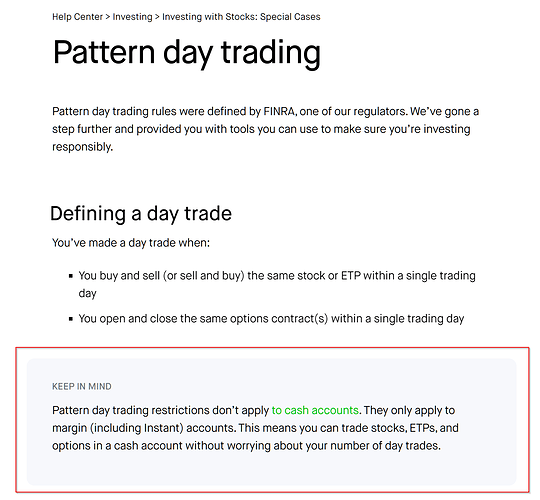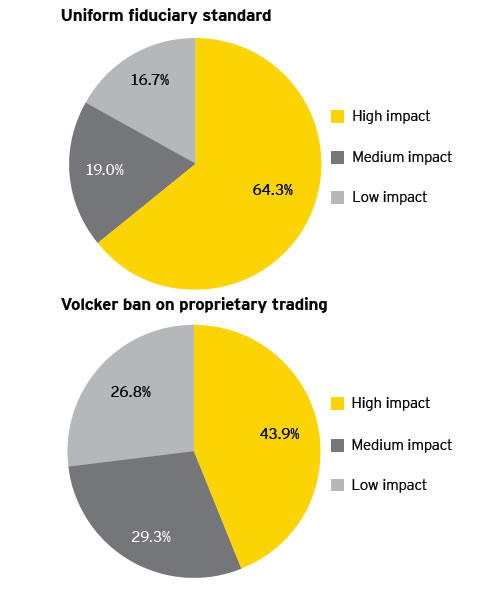Did you know that day traders can sometimes execute more trades in a single day than most people make in a year? Understanding the regulatory landscape is crucial for anyone involved in day trading. This article dives into the essential regulatory requirements set by the SEC and FINRA for day trading firms. Key points include an overview of SEC regulations, FINRA's oversight, necessary licensing, financial prerequisites, compliance procedures, and the implications of non-compliance. We also cover specific rules for proprietary trading firms, reporting obligations, and the impact of anti-money laundering laws. Stay informed with DayTradingBusiness as we break down how to navigate these complex regulations effectively.
What are the SEC’s regulations for day trading firms?
The SEC requires day trading firms to register as broker-dealers, follow capital adequacy rules, and maintain detailed records. They must adhere to FINRA rules on customer protection, anti-money laundering, and fair trading practices. Firms need to implement robust compliance programs, report suspicious activities, and ensure their traders meet minimum capital and experience standards. Regular audits and disclosures are mandatory to prevent fraud and market manipulation.
How does FINRA oversee day trading activities?
FINRA oversees day trading activities by enforcing regulatory requirements, monitoring trading patterns for suspicious or excessive activity, and ensuring compliance with margin rules and reporting obligations. They review broker-dealer records, conduct audits, and investigate violations related to pattern day trading, margin calls, and customer account activity. FINRA also sets rules for disclosures, training, and risk management to protect investors and maintain fair markets.
What licensing do day trading firms need from the SEC?
Day trading firms need to register as broker-dealers with the SEC and become members of FINRA. They must comply with SEC regulations on capital requirements, recordkeeping, and reporting. Additionally, they need to pass FINRA's licensing exams, like the Series 7 and Series 63, and follow their rules for fair trading and transparency.
What are the financial requirements for day trading firms?
Day trading firms must maintain minimum net capital of $25,000 for pattern day traders, as mandated by FINRA. They need to comply with SEC and FINRA regulations on reporting, recordkeeping, and risk management. Firms must register as broker-dealers, meet specific financial and operational standards, and have sufficient liquidity to handle trading activities. Additional requirements include maintaining detailed financial statements and adhering to anti-money laundering laws.
How does the SEC define a day trading firm?
The SEC defines a day trading firm as a broker-dealer that executes four or more day trades within five business days, provided those trades make up more than 6% of its total trading activity in that period.
What compliance procedures must day trading firms follow?
Day trading firms must register with the SEC and FINRA, implement anti-money laundering (AML) programs, maintain minimum net capital requirements, keep detailed trade records, and follow rules on pattern day trading (minimum of $25,000 equity). They must also adhere to customer protection rules, conduct regular audits, and comply with reporting obligations for suspicious activities.
Are there specific reporting obligations for day trading firms?
Yes, day trading firms must file suspicious activity reports (SARs) with FINRA and the SEC if they detect potential fraud or violations, maintain detailed records of all trades, and comply with anti-money laundering (AML) regulations. They also need to report large trade volumes and adhere to SEC and FINRA rules on margin and customer account disclosures.
How does FINRA regulate margin and leverage for day traders?

FINRA requires day traders to maintain a minimum margin of $25,000 in their margin account each day they execute day trades. They enforce the Pattern Day Trader (PDT) rule, which limits traders to four or fewer day trades within five business days unless they have at least $25,000 in their account. FINRA also monitors leverage levels, ensuring traders don't exceed the regulatory maximum, typically set around 4:1 for day trading. If traders violate these rules, FINRA can restrict their trading activity or impose account restrictions.
What are the record-keeping requirements for day trading firms?
Day trading firms must maintain detailed records of all securities transactions, including trade tickets, order tickets, and confirmations. They are required to keep books, records, and correspondence related to their business activities for at least three years, with the first two years in an accessible location. Firms must record communications related to trading activities, including emails and instant messages, to comply with SEC and FINRA regulations. Accurate and complete record-keeping ensures transparency, supports regulatory audits, and helps prevent fraud.
How do SEC and FINRA rules impact trader suitability?

SEC and FINRA rules ensure traders meet specific experience, financial, and risk tolerance standards, preventing unsuitable trading. They require firms to assess each trader’s knowledge and capacity to handle risks, enforcing strict suitability checks. This protects investors from reckless trading and ensures firms only approve clients who can manage potential losses. Compliance with these rules shapes how day trading firms verify and document trader qualifications.
Learn about How Do SEC Rules Impact Day Trading?
What penalties can firms face for non-compliance?
Firms face fines, license suspensions, or bans, lawsuits, and reputational damage for non-compliance with SEC and FINRA regulations. They might also face increased scrutiny, regulatory audits, and mandatory corrective actions, plus potential criminal charges if violations are severe.
How can day trading firms ensure regulatory compliance?
Day trading firms ensure regulatory compliance by registering with the SEC and FINRA, following their rules on capital requirements and reporting, implementing robust anti-fraud measures, maintaining accurate records, conducting regular compliance training, and enforcing strict supervision of trading activities.
Learn about How Do Prop Firms Affect Day Trading Strategies?
What disclosures are required by SEC and FINRA?
Day trading firms must disclose their business practices, risks involved, and compensation structures to SEC and FINRA. They are required to reveal financial condition, trading risks, and conflicts of interest. Firms must also disclose any disciplinary actions, registration status, and material legal proceedings. Regular reporting, including financial statements and compliance updates, is mandated. They must inform clients about margin requirements, commissions, and potential for significant losses.
Are there specific rules for proprietary trading firms?
Yes, proprietary trading firms must follow SEC and FINRA rules, including registration, maintaining capital requirements, and reporting trades. They must also comply with regulations on risk management, record-keeping, and anti-manipulation measures.
How do anti-money laundering laws affect day trading firms?
Anti-money laundering laws require day trading firms to implement customer identification programs, monitor transactions for suspicious activity, and report large or unusual trades to regulators. These regulations increase compliance costs, add oversight burdens, and force firms to maintain detailed records. Failure to comply can lead to fines, license suspension, or legal action. Overall, AML laws tighten scrutiny on day trading firms to prevent illicit financial flows.
Learn about How Do Anti-Money Laundering Laws Affect Day Traders?
What are the ongoing regulatory obligations for day trading firms?
Day trading firms must register with the SEC and FINRA, maintain minimum net capital, adhere to pattern day trading rules with a $25,000 minimum account balance, implement robust AML and cybersecurity protocols, keep detailed trade records, and submit regular reports. They must also comply with customer protection rules, disclose risks transparently, and follow fair trading practices.
Conclusion about Regulatory Requirements for Day Trading Firms by SEC & FINRA
In summary, understanding the regulatory landscape established by the SEC and FINRA is crucial for day trading firms to operate legally and effectively. Compliance with licensing, financial requirements, reporting obligations, and record-keeping standards ensures not only adherence to the law but also the protection of traders and investors. By prioritizing regulatory compliance, day trading firms can mitigate risks and enhance their operational integrity. For more detailed insights and guidance on navigating these regulations, DayTradingBusiness is here to support your trading journey.
Learn about SEC and FINRA Oversight of Day Trading Platforms